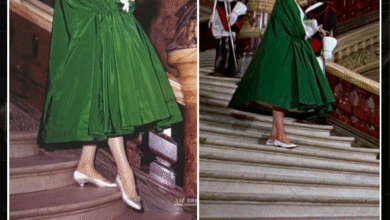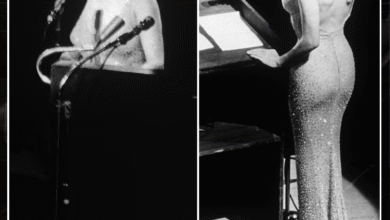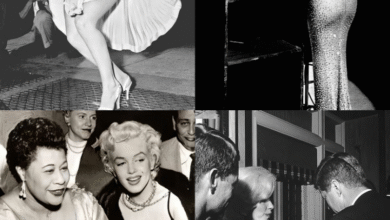Brad Pitt and Edward Norton’s Hilarious Reaction to ‘Fight Club’s’ Brutal Venice Premiere—You Won’t Believe What They Said!
OPINION: This article may contain commentary which reflects the author's opinion.
In September 1999, the world was introduced to Fight Club—David Fincher’s dark, anti-establishment drama based on Chuck Palahniuk’s 1996 novel. But at its world premiere at the 56th Venice International Film Festival, the reaction was far from the iconic status it would later achieve. The midnight screening of Fight Club on September 10, 1999, was met with boos, hostility, and a stunned silence from the audience. Despite the harsh reception, Brad Pitt and Edward Norton, who starred in the film, found humor in the situation, reacting to the jeers with an unexpectedly lighthearted attitude.
A Hostile Reception at the Venice Film Festival
When the credits rolled at the Fight Club premiere, the reactions from the audience were overwhelmingly negative. Reports confirm that attendees, shocked by the film’s abrasive content and subversive themes, responded with boos and audible jeers. According to several sources, including Far Out Magazine and UNILAD, the film’s raw, anti-capitalist messaging and brutal critique of masculinity did not sit well with the sophisticated audience at the prestigious festival. It was a stark contrast to the expectations of the Venice Film Festival crowd, including prominent figures like Giorgio Armani, who were perhaps not prepared for the film’s unapologetically rebellious tone.
As the jeers echoed through the theater, Pitt and Norton—who had reportedly smoked a joint before the screening—found the hostile reaction amusing. The pair laughed at the situation, seemingly unfazed by the backlash. Pitt, in a moment of self-awareness, famously turned to Norton and quipped, “That’s the best movie I’m ever going to be in,” a statement that would later resonate with the film’s transformation into a cult classic. Norton humorously agreed, “Me too.”
Actors’ Pre-Screening Experience and Reactions
The lightheartedness displayed by Pitt and Norton is part of what makes their response to the premiere so memorable. As reported by OK Magazine and IndieWire, the two actors were “stoned” during the screening, which might have added to their ability to laugh off the audience’s negative reception. Their reactions were also a coping mechanism, as they were both confident in the film’s long-term potential despite the initial commercial and critical struggles. Their camaraderie and unshaken belief in the film’s artistic integrity helped them navigate the tough premiere with ease.
Brad Pitt’s Iconic Quote: A Vision for the Future
Pitt’s famous line, “That’s the best movie I’m ever going to be in,” serves as an ironic testament to Fight Club’s ultimate impact. At the time of the premiere, the film’s success was uncertain, but Pitt and Norton’s shared confidence in its potential would be proven right. Fight Club’s subversive take on modern masculinity and consumerism would eventually find its audience, not through traditional box office success, but through its strong cult following and home video release. As a result, the film became a defining cultural touchstone in the years that followed.
From Commercial Failure to Cultural Milestone
Despite its disastrous premiere, Fight Club gained a second life once it was released on home video, with audiences embracing its unconventional storytelling and philosophical depth. The film’s commercial failure at the box office was quickly overshadowed by its rise as a defining cult classic of the 21st century. By 2009, The New York Times had dubbed it “the defining cult movie of our time,” and it remains a seminal work in modern cinema. It is now celebrated for its sharp critique of contemporary society, and its controversial message about consumerism, identity, and rebellion has continued to resonate with new generations.
Legacy of Fight Club: A Cult Classic and a Career Milestone
The story of Fight Club’s premiere at the 1999 Venice Film Festival serves as a reminder that initial public reactions do not always predict a film’s cultural impact. From boos to the film’s eventual success, the journey of Fight Club is a testament to the unpredictability of cinema and the power of word-of-mouth. Brad Pitt and Edward Norton’s unwavering belief in the film, despite the hostile reception, was key to its legacy. Today, Fight Club stands as one of the most iconic films of its era, with its themes of rebellion, identity, and masculinity continuing to influence both filmmakers and audiences.



